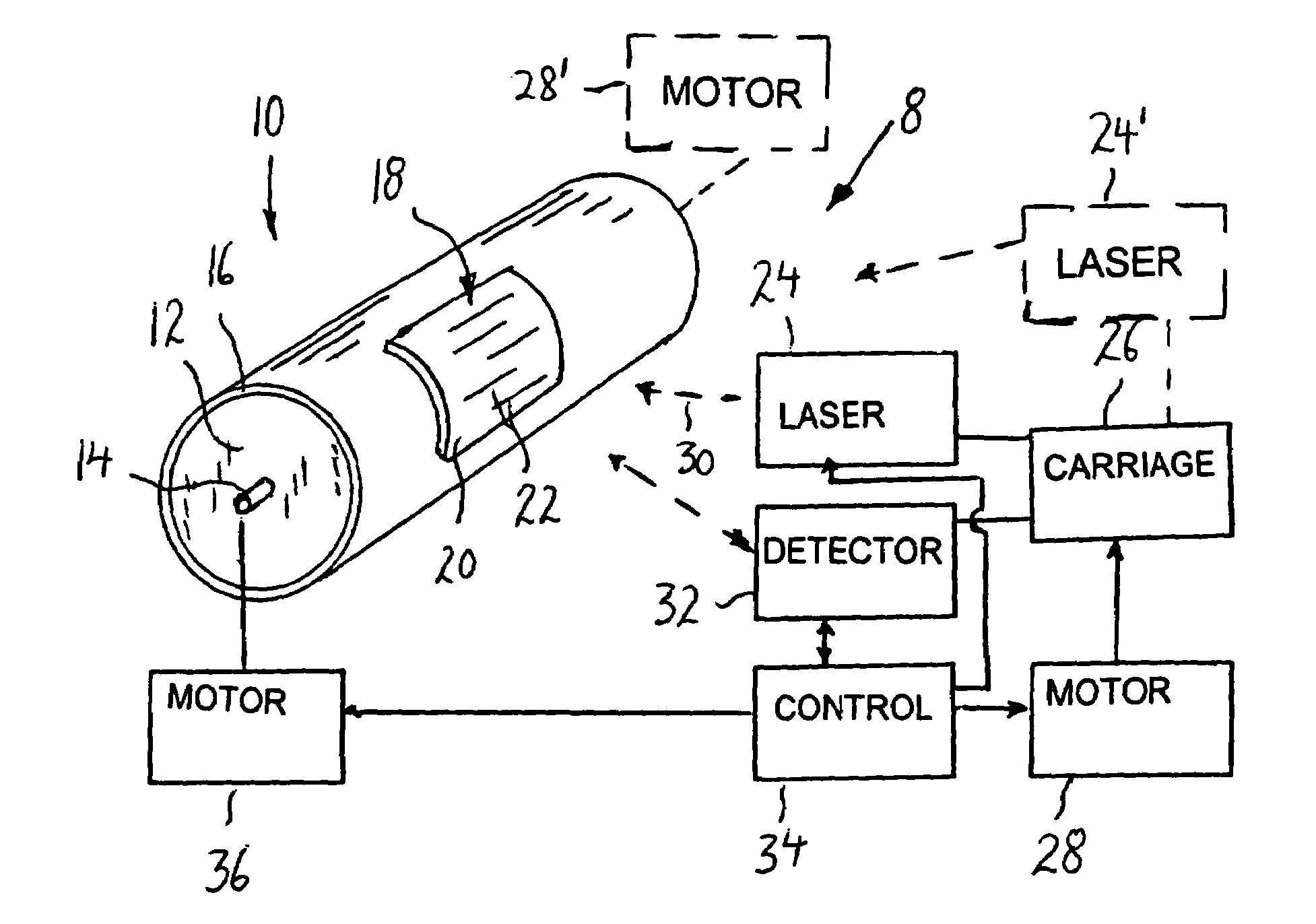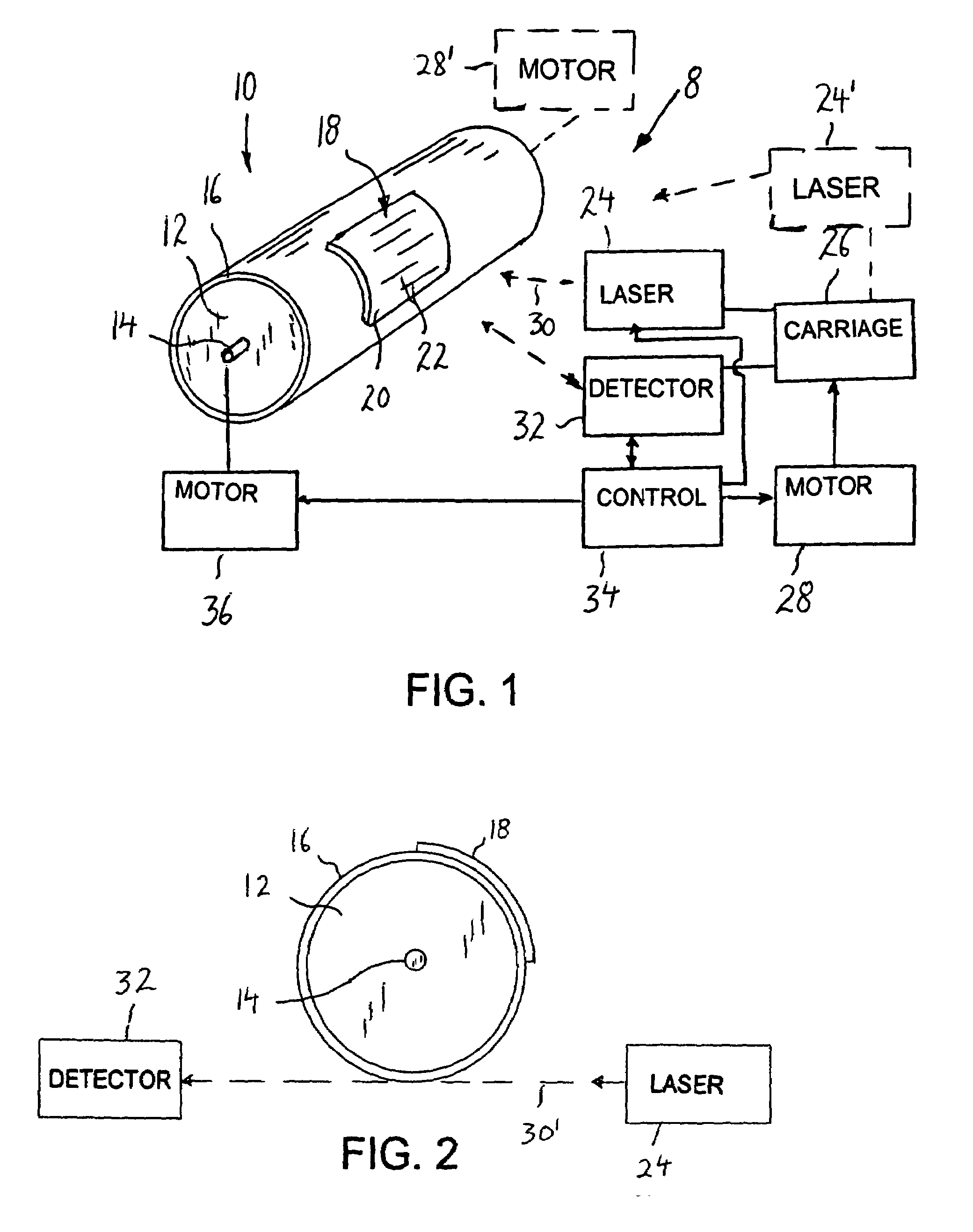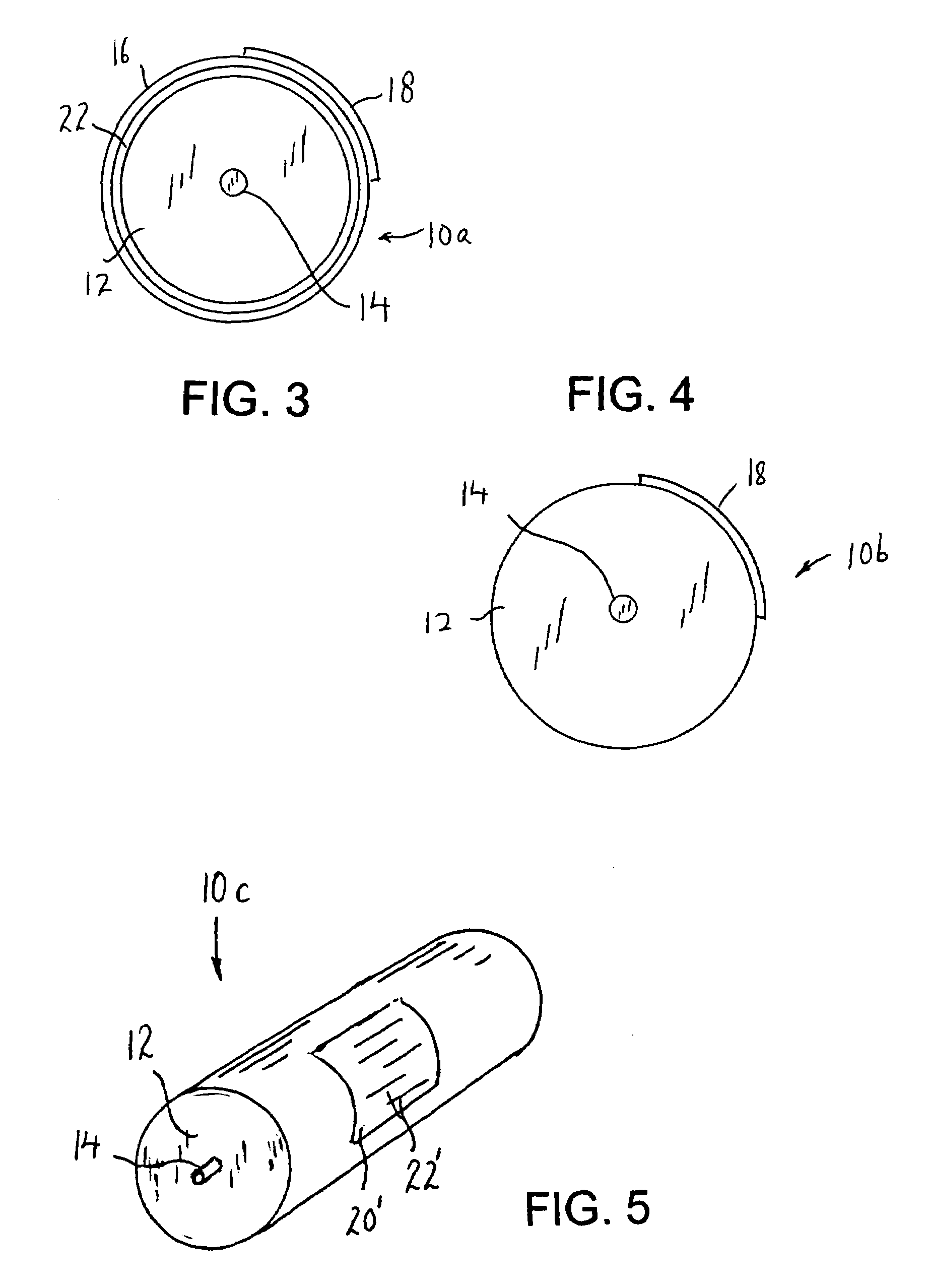Laser ablating of printing plates and/or printing rollers to decrease taper and TIR
a printing plate and printing roller technology, applied in the field of printing plates, can solve the problems of lack of adequate cylindricity, variations in cylindricity, and uneven so as to ensure cylindricity, and reduce tir and/or taper of printing plates.
- Summary
- Abstract
- Description
- Claims
- Application Information
AI Technical Summary
Benefits of technology
Problems solved by technology
Method used
Image
Examples
second embodiment
[0054]In a second method of the present invention, and referring again to FIGS. 1-3, if printing plate 18 does not have a uniformly constant thickness throughout, then it is necessary to also ablate printing plate 18 to reduce variations in TIR and / or TAPER in order to ensure the cylindricity of the outer surface thereof when mounted on sleeve 16. Specifically, as shown in FIG. 7, sleeve 16 is mounted on cylindrical roller 12 in step 200. Then, the cylindricity of sleeve 16 in regard to variations in TIR and / or TAPER is measured in step 202 by detector 32. From these measurements, the portions of the outer surface of sleeve 16 that need to be ablated in order to reduce variations in TIR and / or TAPER to ensure cylindricity thereof are determined in step 204 by control device 34. Laser 24 then ablates those portions of the outer surface of sleeve 16 in order to reduce variations in TIR and / or TAPER to ensure cylindricity, in step 206. In step 206, there is preferably relative longitud...
third embodiment
[0057]Alternatively, in a third method of the present invention shown in FIG. 8, if the thickness of printing plate 18 is not uniformly constant throughout, it is possible to eliminate the steps relating to ablating of cylindrical roller 12 and sleeve 16, and in such case, only ablate printing plate 18 in order to reduce variations in TIR and / or TAPER to achieve cylindricity of the outer surface of printing plate 18 mounted on sleeve 16. Specifically, sleeve 16 is mounted on cylindrical roller 12 in step 300. In such case, cylindrical roller 12 and / or sleeve 16 may or may not have variations in TIR and / or TAPER, and may not be adequately cylindrical. Then, in step 302, printing plate 18 is mounted to the outer surface of sleeve 16 in a conventional manner. In step 304, the cylindricity of printing plate 18 in regard to TIR and / or TAPER is measured by detector 32. From these measurements, the portions of the raised or outer surface 20 of printing plate 18 that need to be ablated in o...
PUM
| Property | Measurement | Unit |
|---|---|---|
| radius | aaaaa | aaaaa |
| electromagnetic spectrum | aaaaa | aaaaa |
| relative movement | aaaaa | aaaaa |
Abstract
Description
Claims
Application Information
 Login to View More
Login to View More - R&D Engineer
- R&D Manager
- IP Professional
- Industry Leading Data Capabilities
- Powerful AI technology
- Patent DNA Extraction
Browse by: Latest US Patents, China's latest patents, Technical Efficacy Thesaurus, Application Domain, Technology Topic, Popular Technical Reports.
© 2024 PatSnap. All rights reserved.Legal|Privacy policy|Modern Slavery Act Transparency Statement|Sitemap|About US| Contact US: help@patsnap.com










